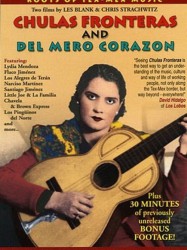Always for Pleasure est un film américain de genre Documentaire réalisé par Les Blank
Always for Pleasure (1978)

Si vous aimez ce film, faites-le savoir !
- Infos
- Casting
- Infos techniques
- Photos
- Vidéos
- Passages TV
- Citations
- Personnages
- Musique
- Récompenses
Durée 58minutes
Réalisé par Les Blank
OrigineEtats-Unis
Genres Documentaire
Themes La musique, Documentaire sur la musique, Documentaire sur une personnalité, Documentaire sur les villes, Musique
Note73%










Always for Pleasure is a 1978 documentary film by Les Blank about social traditions in New Orleans, Louisiana.
The film has footage of musical events, Mardi Gras Indians, a funeral with traditional music (the so-called "jazz funeral"), various second line parades, and cooking and eating red beans and rice and a crawfish boil.
Events filmed include New Orleans Mardi Gras and St. Patrick's Day 1977.
Local musicians perform and are interviewed, including Kid Thomas Valentine, Allen Toussaint, Danny Barker, Blue Lu Barker, Irma Thomas, the Neville Brothers and Professor Longhair.
The film subtitles a Creole song as "Hey Legba" when the tune's title phrase is actually "Eh la bas", a formerly common Louisiana Creole phrase of greeting roughly translating as "Hey over there you". However, in New Orleans, Legba was often referred to as "Papa La Bas", and some scholars, such as Henry Louis Gates, believe that "Eh La Bas" was a covert reference to Legba.
Unusually, the film includes looks at traditional predominantly white second lining organizations; many other films and documentarians have falsely assumed such traditions to exist only in predominantly black groups.
The DVD re-release includes additional performance footage of Professor Longhair.
Commentaires
Postez un commentaire :
Suggestions de films similaires à Always for Pleasure
Il y a 6 films avec le même réalisateur, 8969 ayant les mêmes genres cinématographiques, 8582 films qui ont les mêmes thèmes (dont 32 films qui ont les mêmes 5 thèmes que Always for Pleasure), pour avoir au final 70 suggestions de films similaires.Si vous avez aimé Always for Pleasure, vous aimerez sûrement les films similaires suivants :

Chulas Fronteras (1976)
, 58minutesRéalisé par Les Blank
Genres Documentaire, Musical
Thèmes La musique, Documentaire sur la musique, Documentaire sur une personnalité, Musique
Note71%






In Heaven There Is No Beer? (1984)
, 51minutesRéalisé par Les Blank
Genres Documentaire, Musical
Thèmes La musique, Documentaire sur la musique, Documentaire sur une personnalité, Musique
Note69%






Burden of Dreams (1982)
, 1h35Réalisé par Les Blank
Origine Etats-Unis
Genres Documentaire
Thèmes Film traitant du cinéma, Documentaire sur le monde des affaires, Documentaire sur le cinéma, Documentaire sur une personnalité, Documentaire sur les films
Acteurs Claudia Cardinale, Werner Herzog, Mick Jagger, Klaus Kinski, Jason Robards, José Lewgoy
Note78%





Burden of Dreams est un documentaire réalisé par Les Blank en 1982. Filmé en Amérique du sud, il met en scène les principaux artistes impliqués dans la réalisation de Fitzcarraldo : Claudia Cardinale, Werner Herzog, Mick Jagger, Klaus Kinski et Jason Robards.

Werner Herzog Eats His Shoe (1988)
, 21minutesRéalisé par Les Blank
Genres Comédie, Documentaire
Thèmes Documentaire sur le monde des affaires, Documentaire sur le cinéma, Documentaire sur une personnalité
Acteurs Werner Herzog, Errol Morris, Tom Luddy
Note71%





 , 1h40
, 1h40Réalisé par Penelope Spheeris
Origine Etats-Unis
Genres Documentaire, Musical
Thèmes La musique, Documentaire sur la musique, Documentaire sur une personnalité, Documentaire sur les villes, Musique
Acteurs John Doe, Lee Ving, Penelope Spheeris
Note74%





Featuring concert footage of Los Angeles punk bands and interviews both with band members, the publishers of Slash fanzine, and with the punks who made up their audience, the film offers a look into a subculture that was largely ignored by the rock music press of the time.

Rockabilly 514 (2008)
Réalisé par Patricia Chica
Origine Canada
Genres Documentaire
Thèmes La musique, Documentaire sur la musique, Documentaire sur une personnalité, Documentaire sur les villes, Musique
Note64%






Sound City (2013)
, 1h48Réalisé par Dave Grohl
Origine Etats-Unis
Genres Documentaire, Musical
Thèmes La musique, Documentaire sur le monde des affaires, Documentaire sur la musique, Documentaire sur une personnalité, Documentaire sur les villes, Musique
Acteurs Trent Reznor, Dave Grohl, Barry Manilow, Rick Rubin, Rick Springfield, Lee Ving
Note77%





Sound City est un documentaire centré sur l'histoire du célèbre studio d'enregistrement Sound City situé à Van Nuys, un quartier de Los Angeles et raconte ses déboires et ses succès. Le film se penche sur la création du studio par et notamment la console d'enregistrement Neve 8078

Six by Sondheim (2013)
Réalisé par Todd Haynes
Origine Etats-Unis
Genres Documentaire, Musical
Thèmes La musique, Documentaire sur la musique, Documentaire sur une personnalité, Documentaire sur les villes, Musique
Acteurs Audra McDonald, America Ferrera, Stephen Sondheim, Jarvis Cocker, Yvonne De Carlo, Jackie Hoffman
Note78%






World's Best Prom (2006)
, 1h20Genres Documentaire
Thèmes Danse, Le thème de l'éducation, La musique, Documentaire sur la musique, Documentaire sur une personnalité, Documentaire sur les villes, Musique
Note70%





The film focuses on the prom-obsessed residents of Racine and, in particular, two very different girls and one boy (Tonya, Dori, and Ben) who are followed in the days and nights leading up to their prom night. The "mega prom" was introduced to Racine almost 50 years ago by the city's Rotary Club after an alcohol-related car accident. As a result, the Rotary decided to sponsor a post-prom party for the city's high schools as a safe alternative for prom-goers.

The Toronto Rap Project (2006)
Origine Canada
Genres Documentaire
Thèmes La musique, Documentaire sur la musique, Documentaire sur une personnalité, Documentaire sur les villes, Le hip-hop, Musique
 Connexion
Connexion